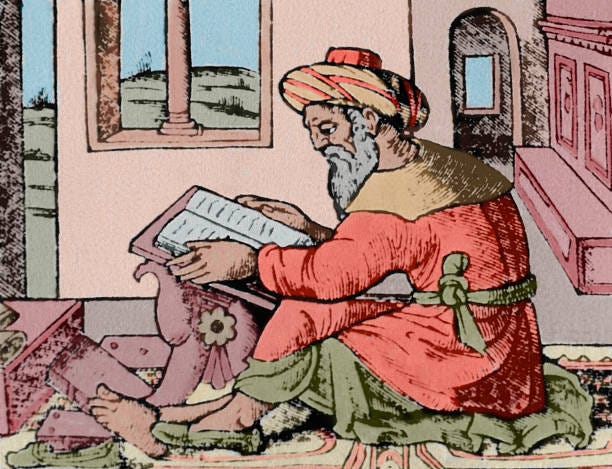Hate Not - Fear Not---by Robert Graves Kill if you must, but never hate: Man is but grass and hate is blight, The sun will scorch you soon or late, Die wholesome then, since you must fight. Hate is a fear, and fear is rot That cankers root and fruit alike, Fight cleanly then, hate not, fear not, Strike with no madness when you strike. Fever and fear distract the world, But calm be you though madmen shout, Through blazing fires of battle hurled, Hate not, strike, fear not, stare Death out!
It is bitterly ironic that I write this essay just after the United States bombed and destroyed Iran’s nuclear war facilities. It is not that I am opposed. The present leadership of Iran is dangerous. Rather, it is that the world situation seems worse than ever: more hate, more conflict, and more rage.
There’s an old quote by the philosopher Ibn Rushd, written over 800 years ago. He said, “Ignorance leads to fear, fear leads to hatred, and hatred leads to violence.” I’ve never forgotten those words. They echo in my mind whenever I hear about another act of cruelty, another war, another child who grows up learning to hate someone they’ve never met.
I’ve lived through this pattern. I saw it as a boy growing up in New York City in the 1950s and 1960s. It wasn’t just something in history books or faraway places. It was here, on the sidewalks, in the schools, and even in the casual remarks of neighbors and strangers.
There was racism everywhere. In those years, segregation was still alive in many parts of the country. Even in the North, where I lived, there was anger between groups: Black and white, Jewish and Christian, immigrant and native-born. I saw people judged instantly by the color of their skin, the accent in their voice, or the religion they practiced. I felt the sting of anti-Semitism myself more than once. Slurs were shouted. Jokes were made. And sometimes, it went further. It turned into fists. It turned into fire.
As a young boy, I didn’t understand why people hated each other so easily. Now, after a lifetime of studying human nature and working with others as a psychotherapist, I can see the pattern more clearly. It starts with ignorance. People don’t understand one another. They don’t know each other’s stories, struggles, or humanity. And that lack of understanding makes people feel unsure, threatened, or even frightened. Fear grows. And when people feel fear for long enough, they try to protect themselves by pushing others away. That’s when hatred takes root. And hatred, in its worst form, becomes violence.
You can see this pattern again and again throughout history. And you can see it right now. Turn on the news and there it is. People are divided into groups and treated as enemies. Labels are thrown around like weapons. We stop seeing people as individuals and instead begin to see them as something dangerous, just because they’re different.
And yet, this is not who we have to be. We are not doomed to repeat the same cycle forever. There’s another path, but it takes work. It begins with knowledge. Not the kind of knowledge you get from textbooks, but the kind that comes from listening. Listening to other people’s stories. Listening with an open heart. It takes courage to do that. Courage to look at someone who is different from you and try to understand their pain, their dreams, their life.
I’ve spent my life trying to do that. Sometimes I’ve failed. Sometimes I’ve held on to anger longer than I should have. But I’ve also learned to soften, to question, and to keep listening. Because that is the only way forward. That is the way out of fear. And it is the way toward peace.
When I think about the children growing up today, in a world filled with shouting, mistrust, and division, I worry. But I also believe in the power of learning. I believe in the power of love. I believe that every one of us has a choice. We can choose to stay in the shadows of ignorance and fear, or we can step into the light of understanding and connection.
Ibn Rushd was right. Ignorance leads to fear, fear leads to hatred, and hatred leads to violence. But we can break that chain. We can stop it. If we learn to listen. If we teach each other better. If we hold on to our shared humanity.
That is the hope I carry in my heart, even now.








Our responses to anger and fear are learned- so that means they can be “unlearned.”
We can walk this path of life so much better.
Keep up the good fight. 🌼